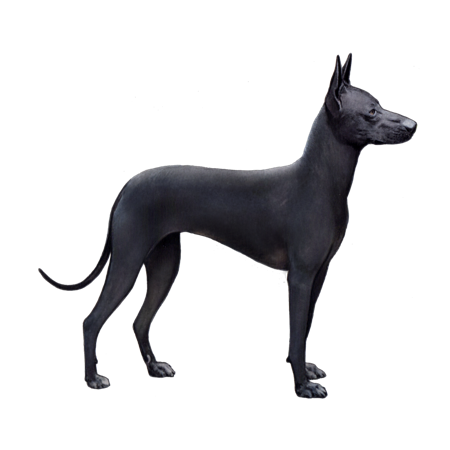
Cairn Terrier
The Cairn Terrier is a happy, active, and courageous breed. Craving human interaction, Cairn Terriers have great personalities and are well-suited for children. These hardy dogs like having places to explore and dig.
Interested in discovering if your dog is a Cairn Terrier?
Check out Wisdom Panel's DNA tests.

Cairn Terrier Traits
General Appearance
Cute and compact, the Cairn Terrier is a bright-eyed little pup.
Coat and Colouring
The Cairn Terrier's medium-length coat may be any color besides white, including black, cream, gray, red, silver, wheaten, or brindle-striped shades. Black markings, points, or a black mask are also common (and desirable).
Distinctive Physical Traits
Small and stocky in appearance, the short-legged Cairn Terrier has a rugged, shaggy look. This breed holds its broad, wide head and sharply pointed ears up high.
Cairn Terrier Temperament
Active, alert, intelligent, and inquisitive dogs, Cairn Terriers thrive with attention but struggle when left alone too much. In fact, they may become destructive when lonely and bored.
The Cairn Terrier is a small, working breed that likes to please, keep busy, and be challenged. As a result, it can be hard to distract these dogs from an activity they enjoy.


Cairn Terrier History
The Cairn Terrier originated in the 16th century on the Isle of Skye in Scotland. At that time, the breed was known as the Short-Haired Skye Terrier.
These dogs were bred to hunt smaller animals, such as foxes, weasels, and rodents. In 1912, the breed's name changed to Cairn Terrier—a reference to the rock formations where the dogs would often hunt vermin. And the American Kennel Club recognized the breed in 1913.
The best-known Cairn Terrier in the United States to date is Toto, a character from the 1939 classic film The Wizard of Oz.
Cairn Terrier Care
Nutrition
Cairn Terriers need a high-quality dog food that is age-appropriate. As you should with any dog, be sure to monitor the amount of food your Cairn Terrier consumes and reduce the portions if your pup gains weight. Also, remember that giving too many treats in addition to regular meals can contribute to obesity.
Grooming
In terms of grooming needs, Cairn Terriers are generally low-maintenance. Weekly brushing and combing—as well as occasional hand-stripping to retain the coat's texture—will keep your pup looking their finest.
Exercise
A modest amount of daily movement should satisfy the exercise needs of your Cairn Terrier. These dogs prefer activities that involve their owners—such as long walks, short runs, or play sessions. Cairn Terriers also seem to enjoy dog sports such as agility, tracking, flyball, and obedience.
Training
Though they can be stubborn or strong-willed, Cairn Terriers respond to gentle, reward-based training. And thanks to their high intelligence, they are quick to learn.
Due to the breed's history of hunting, Cairn Terriers may bark, scratch at the ground or dig, and chase wildlife. But they're friendly with other dogs and pets when properly socialized.
Cairn Terriers get along well with kids. But like dogs of any breed, they should not be in the company of children without supervision.

Cairn Terrier Genetic Health Conditions
-
Craniomandibular Osteopathy (Discovered in Scottish Terrier breeds)
Craniomandibular Osteopathy (CMO), also known as "lion's jaw", is a disorder of the skull where the jaw bones show swelling and thickening, causing pain, drooling, and difficulties in eating.
-
Globoid Cell Leukodystrophy (Discovered in Terriers)
Globoid Cell Leukodystrophy (GLD) is a disorder which results in degeneration of the nervous system. GLD is characterized by muscle weakness, tremors, and ataxia (uncoordinated movement). Signs of the disease also include behavioral changes, incoherence, blindness, and deficits in normal reflexes.
-
Macrothrombocytopenia (Discovered in Norfolk and Cairn Terrier)
Macrothrombocytopenia is a blood disorder characterized by oversized blood platelets, which play an important role in blood clotting when a blood vessel is injured.
-
Pyruvate Kinase Deficiency (Discovered in the West Highland White Terrier)
Pyruvate Kinase Deficiency (PKD) is a disorder that causes anemia due to the breakdown of red blood cells.
Knowing if your Cairn Terrier is a carrier or at-risk for these conditions can help you and your veterinarian plan for your pup's lifelong care. With Wisdom Panel™ Premium, you can get results for over 200 genetic health tests.
Breed Group
Terrier
The Terrier Group ancestors were bred to hunt and kill vermin. They are often characterized as feisty and energetic dogs whose sizes range from fairly small to much larger.
Resources
https://www.akc.org/dog-breeds/cairn-terrier/
https://vcahospitals.com/know-your-pet/dog-breeds/cairn-terrier
Reviewed 26 July 2020 by Cindy Elston, DVM, MPH































































